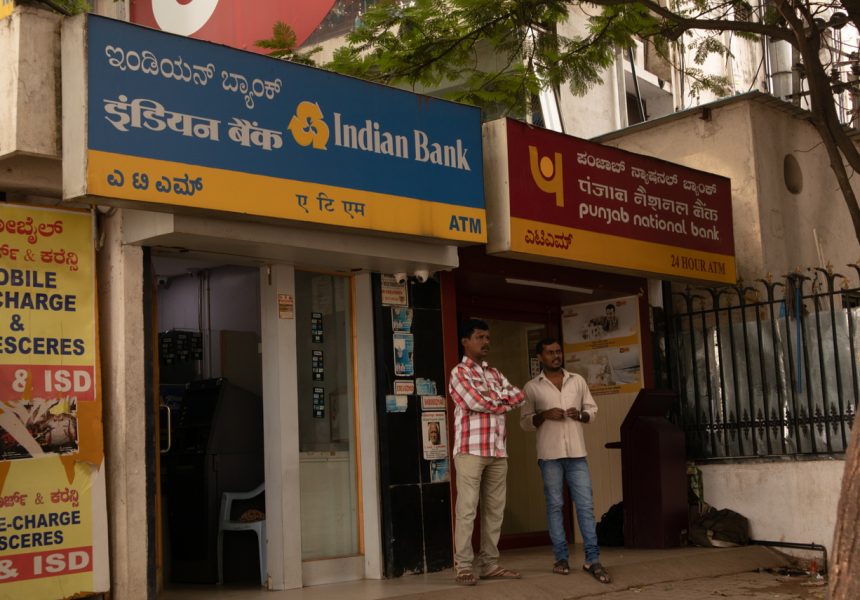
7 reasons why RBI is against big-bang privatisation of PSU banks
During stress periods, stronger PSBs bring down the destabilising impact on the banking sector and the economy; PSBs have played a major role in boosting public confidence, says RBI

Providing an alternate perspective to privatisation of public sector banks, the Reserve Bank of India (RBI) has said that the state-run banks (PSU banks) have gained greater market confidence in recent times and a ‘big-bang approach’ to privatisation of these banks may do more harm than good.
The Union government wants to cut down the number of nationalised banks from 12 now to about four or five in the next few years, according to reports last month.
Currently, the government is studying the impact of the consolidation of nationalised banks in 2019. Back then, the Centre had merged 10 nationalised banks into four, thus reducing the number of public sector banks from 27 a year before to just 12.
Also read: Privatisation of PSU banks will compromise financial security: Cong MP in LS
The government is now said to be eyeing 4-5 public sector lenders which will be as strong as State Bank of India.
RBI’s alternate perspective
In its August bulletin published on Thursday (August 18), the central bank, under the article titled ‘Privatisation of Public Sector Banks: An Alternate Perspective’, empirically examined the performance of public sector banks (PSBs) relative to private sector banks (PVBs). It listed seven main reasons to not privatise PSBs in haste:
- In Union Budget 2021-22, the government announced its intent to take up the privatisation of two PSBs. Using data envelopment analysis (DEA), the RBI found that while PVBs are more efficient in profit maximisation, their public sector counterparts have done better in promoting financial inclusion.
- The labour cost efficiency of PSBs is higher than PVBs. Empirical evidence also suggests that lending of PSBs is less procyclical than PVBs and thus PSBs help the countercyclical monetary policy action to gain traction, it said.
- As per RBI, a more nuanced approach is required when it comes to pursuing privatisation of PSBs. “Privatisation is not a new concept, and its pros and cons are well known. From the conventional perspective that privatisation is a panacea for all ills, the economic thinking has come a long way to acknowledge that a more nuanced approach is required while pursuing it,” it explained.
- In the article, the RBI provided an alternative view with evidence that public sector banks are not entirely guided by the profit maximisation goal alone and have integrated the desirable financial inclusion goals in their objective function unlike PVBs.
- The RBI said despite the criticism of weak balance sheets, as per data, the PSBs weathered the COVID pandemic shock “remarkably well”.
- “Our results also point out the countercyclical role of PSB lending. In the recent years, these banks have also gained greater market confidence. Despite the criticism of weak balance sheets, data suggests that they weathered the Covid-19 pandemic shock remarkably well,” it said.
- Further, the RBI said the recent mega merger of PSBs has resulted in consolidation of the sector, creating stronger and more robust and competitive banks, and the establishment of National Asset Reconstruction Company Limited (NARCL) will help in cleaning up the legacy burden of bad loans from their balance sheets.
Role of NABFiD
Stating that the Union government has already announced its intention to privatise two banks, the RBI said NABFiD will provide an alternate channel of infrastructure funding, thus reducing the asset-liability mismatch concerns of PSBs.
Also read: What banks privatisation would mean for govt, customers, shareholders
“The recently constituted National Bank for financing infrastructure and development (NABFiD) will provide an alternate channel of infrastructure funding, thus reducing the asset liability mismatch concerns of PSBs. Overall, these reforms are likely to help strengthen the PSBs further. Against the backdrop of these findings, a big-bang approach of privatisation of these banks may do more harm than good. The government has already announced its intention to privatise two banks.
“Such a gradual approach would ensure that large scale privatisation does not create a void in fulfilling important social objectives of financial inclusion and monetary transmission,” the RBI said.
Role of PSBs in financial inclusion
According to the RBI, PSBs account for the highest share of bank branches in rural areas, followed by semi-urban areas, in adherence to their commitment to the financial inclusion objective. The PSBs dominate in meeting the credit demand of rural areas. Although PVBs have been making some inroads in the rural areas, their progress remains slow.
Also read: Nirmala: Indian PSBs had worst phase under Manmohan, Raghuram Rajan
“Pradhan Mantri Jan Dhan Yojana (PMJDY), envisages universal access to banking facilities with at least one basic banking account for every household. As of July 2022, more than 45 crore beneficiaries have been banked and 78 per cent of these accounts were in PSBs. Moreover, more than 60% of PMJDY accounts opened in PSBs were in rural and semi-urban areas,” it said.
Market confidence
“At the onset of global financial crisis, deposits flew out of PVBs to PSBs… Deposits typically flew to stronger banks, both in the public and private sector. This shows that investors and depositors value the health of banks much more as compared to implicit government guarantees, while placing their trust.
“It can also be argued that during such stress periods, if stronger PSBs had not existed, the destabilising impact on the banking sector and the economy would have been much greater. Such episodes could have easily led to a run on banks resulting in financial disintermediation. In that sense, the public sector banks have played a major role in boosting public confidence. Higher resources raised by PSBs as compared to PVBs in the recent years also provides a testimony of growing market confidence in them,” the RBI said.
Also read: RBI mulls UPI transaction fees; seeks public opinion

